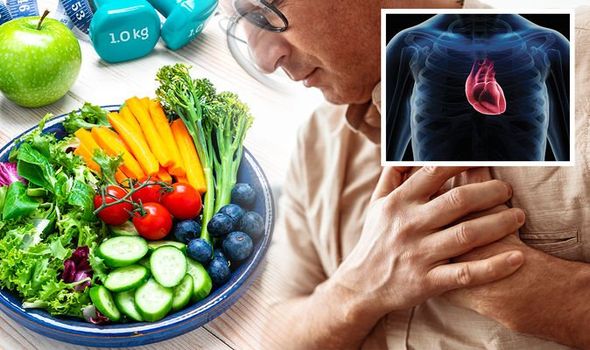A healthy diet can reduce cholesterol levels, blood pressure, and triglycerides. Regular exercise also improves heart health.
Avoid foods containing saturated fat (red meat, butter, lard, and dripping) and replace them with unsaturated fats found in nuts, seeds, plant oils, and oily fish.
Ensure you have a good source of omega-3 fatty acids by eating cold-water fish two to three times per week.
Table of Contents
Exercise
While genetics and family history play a significant role in heart disease, diet and exercise are important modifiable risk factors. Eating a healthy, well-balanced diet and exercising regularly can help reduce cholesterol levels, control blood pressure, manage weight, and decrease stress.
Regular aerobic activity such as walking, swimming, and light jogging helps keep the heart pumping strong and healthy. The American Heart Association recommends at least 150 minutes of moderate-intensity weekly activity. Muscle-strengthening activities two or more days a week are also important. Some examples are lifting weights, using resistance bands, or performing sit-ups and push-ups.
When starting a new exercise program, please talk with your doctor to ensure it is safe. Always start slowly and increase your activity level gradually. Take your pulse before and after exercise to ensure you are working out at a safe pace for your heart condition. Be sure to drink plenty of water. For more information, see How to Exercise.
Diet
A heart disease diet can slow the narrowing of the arteries, which leads to heart attack and stroke. It also reduces blood cholesterol, lowers blood pressure, and helps manage weight. The diet emphasizes lean animal protein, whole grains, fruits and vegetables, nuts, and fat-free or low-fat dairy products. It limits saturated and trans fats, dietary cholesterol, sodium, and sugar.
People following the cardiac diet should eat two servings of oily fish (salmon, trout, herring, or sardines) weekly. It should contain omega-3 fatty acids, which help prevent an irregular heart rhythm and the buildup of plaques in arteries. Vegetable sources of omega-3 fatty acids include walnuts, almonds, flaxseeds, pumpkin seeds, and chia seeds. When cooking, use salt substitutes or blend herbs and spices to flavor foods without salt. Avoid fried foods, sauces, and dressings high in sodium, and use a reduced-sodium salt alternative when dining out. Make sure to cook food at home as much as possible.
Alcohol
The association between alcohol consumption and cardiovascular conditions such as hypertension, coronary heart disease (CHD), and cardiomyopathy is complex and modulated by the dose, frequency, and pattern of alcohol consumption. Some research suggests that lower amounts of alcohol may have cardioprotective effects, while higher levels and binge patterns appear to increase the risk (see Table 2).
Long-term heavy alcohol intake causes adverse histological and cellular changes within the myocardium and leads to abnormalities in calcium handling, alteration of mitochondrial bioenergetics, and protein degradation. It also causes oxidative stress and inflammatory markers such as C-reactive protein changes.
Excessive alcohol use is associated with increased blood triglycerides and can contribute to weight gain, which increases the risk of heart attack, stroke, and type 2 diabetes. Heavy drinking also impairs endothelial nitric oxide function and is a risk factor for atherosclerosis. It is essential to avoid alcohol during the heart disease diet.
Smoking
Smoking damages nearly every part of your body, including your blood vessels (cardiovascular system). When smoke enters your lungs, it mixes with a toxic mix of more than 7,000 chemicals.1 These toxins interfere with essential processes that help your heart and blood vessels usually work. For example, they interfere with how well your arteries transport oxygen-rich blood throughout your body.
Smoke also raises levels of LDL or “bad” cholesterol and blood fats called triglycerides. These increase your risk of heart disease by increasing the amount of waxy plaque in your arteries. It also reduces HDL or “good” cholesterol levels, which helps keep your arteries clear.
Follow a diet that includes poultry, fish, skinless red meat, fat-free or low-fat dairy products, fruits, and vegetables. Add legumes and nuts, plus oils rich in heart-healthy omega-3 fatty acids, such as olive oil. Consume 2 to 3 servings of oily fish a week (herring, sardines, and salmon) or take an omega-3 dietary supplement.


 Home
Home









